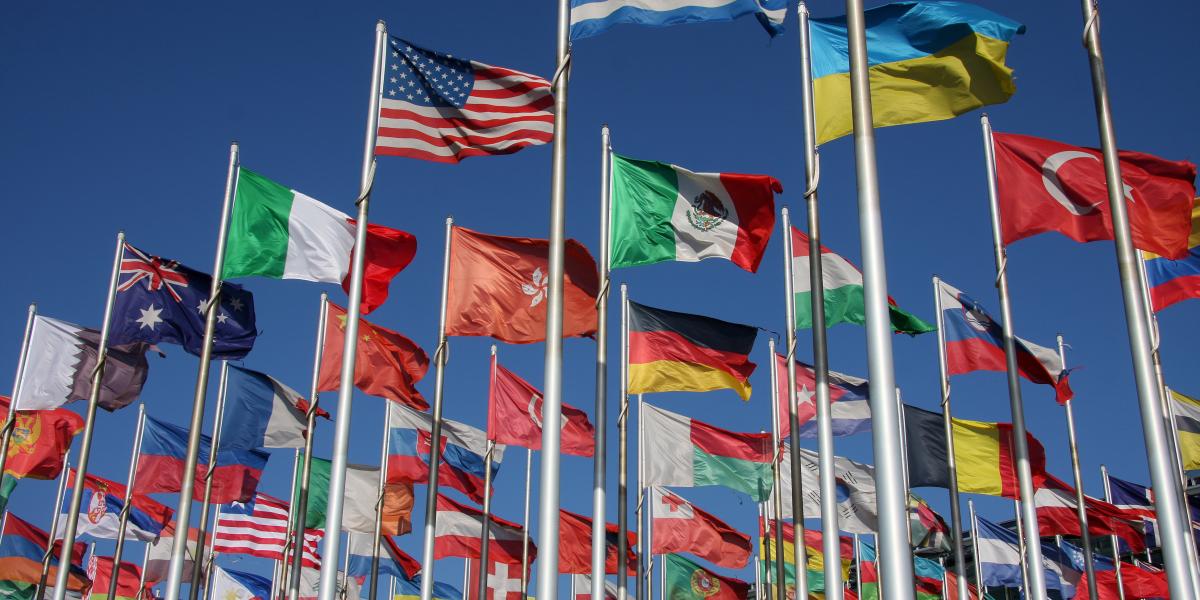Several schools of thought dominate geopolitical discourse in the chaotic world of international relations. Interventionists of all labels wish for the United States to police the world to some extent while warning of the perils of “isolationism.” At the same time, the United States shirks that same authority when the rules-based order conflicts with the whims of Washington. The libertarian should have a healthy skepticism of the state and recognize attempts to further expand its geographical jurisdiction as an assault on liberty. A healthy understanding of human nature, public choice, and power incentives should inform the libertarian position on foreign policy, leading libertarians to support a vision of restrained realism rather than idealistic interventionism.
Interventionists consistently point to the actions of Russia, Iran, China, and other competitors as a failure of the United States to act aggressively enough. This sentiment ignores history and places world actors into fairy-tale categories of “good” and “bad.” While there have been bad actors throughout history, the libertarian should recognize that state actors in any government almost always act out of self-interest, with ideological preferences as tools to justify said actions and garner political support.
Supporters of geopolitical primacy and international liberalism completely miss this point. The American primacist firmly places the United States in the category of “good actor” and, therefore, usually believes that Washington is justified in placing its preferences above those of other actors while often labeling other nations as “bad actors,” or at least as aggressive competitors worthy of domination. This ignores any potentially reasonable requests of other states and perpetuates the fairy tale that the United States is a country usually on the right side of history that simply wants to uphold global peace and democracy.
International liberalism tends to view human nature through a more charitable lens. The Wilsonians who supported the failed League of Nations believed that international cooperation through a complex system of governance and accountability could solve world problems. The primary issue with this boils down to public choice. As Wilson rhetorically supported self-determination, he wielded American power in America’s sphere of influence with little regard for self-determination. “I helped make Mexico safe for American oil interests in 1914,” said Wilson’s former Marine Corps General, Smedly Butler. He continued,
I helped make Haiti and Cuba a decent place for the National City Bank boys to collect revenue in. I helped purify Nicaragua for the internal banking house of Brown Brothers… I brought light to the D.R. for American sugar interests in 1916.
Additionally, the Western powers that ascribed to the rules set by the League of Nations were still firmly imperialist and were slow to curb each other’s imperialist tendencies. Italy’s invasion of Ethiopia in 1935 put this on display, as Ethiopian emperor Haile Selassie appealed to the league for assistance, but none wanted to oppose fellow league member Benito Mussolini. President Obama, another internationalist, famously destroyed Libya and created ISIS in Syria by supporting rebel groups during the civil war there.
Both primacists and liberal internationalists fall into utopian fallacies concerning human nature. The unconstrained vision for humanity, as described by Thomas Sowell, supposes that humanity is perfectible and should be governed as such. American primacy views the United States as naturally good, or at least enlightened, while the rest of the world needs to be dominated and controlled. Liberal internationalism views the world as perfectible if only the correct rules can be instituted to curb bad actors.
The glaring problem with both of these theories is that humans—who have had a flawed nature since the fall of Adam—are the ones creating these institutions and systems of governance. Therefore, these institutions will naturally work to serve their creators. Because of this, the restrained-realist views international systems as potentially helpful but equally potentially dangerous.
It isn’t that restrainers never believe in universal morals, but larger powers can ignore standards as it suits them, with selective enforcement only serving to increase power imbalances. Under realism, Thomas Sowell’s constrained vision of human nature finds its home, with it the understanding that humans typically act towards self-interest rather than altruism.
Additionally, the reality and necessity of an incoming multi-polar world should be apparent to all, but realists usually recognize it well. The US enjoyed an almost unprecedented period of uncontested primacy after the Soviet Union fell in 1991. That time is ending, as it should, and Washington must prepare accordingly. The realist Dr. John Mersheimer described how the United States should act in a multi-polar world, stating that Washington should operate with “strategic empathy,” meaning that Americans must recognize its enemies’ potentially legitimate security concerns. Specifically, Mersheimer has pointed out that the United States failed to anticipate Russia’s recent escalation in Ukraine because “few American policymakers are capable of putting themselves in Mr. Putin’s shoes.” Viewing America’s enemies as incapable of having legitimate security concerns only serves to alienate the United States and push its enemies into a corner, forcing them to act accordingly.
Political actors want to leave a legacy, whether that legacy is fictional or not. It is completely reasonable to assume that President Bill Clinton, for example, wanted NATO expansion to be his legacy, used the Partnership for Peace as a temporary measure, and later forced Boris Yeltsin to sign the Nato-Russia Founding Act while simultaneously breaking Secretary of State James Baker’s promise not to move NATO eastward. When examining Russia’s concerns with strategic empathy, one can recognize that Russia did not want an adversarial weapons build-up on its doorstep. Still, Bill Clinton likely wanted an international legacy.
Legacy building can also be seen in President Bush’s War on Terror. There were never any WMDs in Iraq, Iraq did not assist the 9/11 attackers, and Saddam was a fine enough ally for Washington during the Iran-Iraq War. Still, Bush needed a smoking gun to ensure that he had the necessary political will to invade and occupy Iraq while eroding American civil liberties through the Patriot Act.
The study of foreign policy or international relations must stem from the realization that the state acts almost solely to justify its existence and intimidate potential competition through force or the threat of force. Joseph Schumpeter explores how this relates to imperialism, specifically in his work Imperialism and Social Classes: “Created by wars that required it, the machine now created the wars it required.”
This quote can be attributed to the early history of the United States, as even before the term “Manifest Destiny” was coined in 1845, Americans acted as though the North American continent was theirs to dominate. The domination of native populations isn’t uniquely American by any means. Still, Americans did so with such unique hubris that necessitated the creation of the term “Manifest Destiny” to describe the phenomenon.
The “self-licking ice cream cone” that is the warfare state has existed in almost every modern civilization throughout history. The US antagonized the Japanese and Germans with false neutrality during World War II and incurred the wrath of imperial Japan. Thus, Japan became a threat. Israel invaded Lebanon to root out the Palestinian Liberation Authority and created the threat of Hezbollah—a threat that still gives Israel justification for occupying and shelling parts of Lebanon to this day. The Dayton Peace Agreement was only created after previous, more equitable deals were rejected by American/NATO-supported parties. The Dayton agreements necessitated the heavy US/NATO involvement in Bosnia to this day.
The great Murray Rothbard laid out the libertarian position on war as almost unequivocally pro-peace, as nations that participate in war naturally participate in further aggression towards their citizens through additional taxation, conscription, industrial nationalization, asset forfeiture, etc. “The libertarian objective, then, should be, regardless of the specific causes of any conflict, to pressure States not to launch wars against other States,” wrote Rothbard in The Ethics of Liberty. “And, should a war break out, to pressure them (States) to sue for peace and negotiate a cease-fire and a peace treaty as quickly as physically possible.” This was the goal under what Rothbard labeled “old-fashioned international laws of the eighteenth and nineteenth centuries.”
Rather than pursuing a peaceful coexistence with nations that are culturally different, primacists in the West see the United States (and its proxies) as being uniquely worthy of having regional influence and believe that other nations must submit or else witness the wrath of the American military-industrial complex. The libertarian realist should seek to uphold Rothbard’s standard of peace by embracing strategic empathy and removing nationalist blindfolds that restrict their historical perspective and paint their country as always justified in its actions and its enemies as the unjustified aggressors.
It can’t be ignored that historical winners often push narratives. Libertarians should be especially wary of state narratives because they know these narratives often muddle the truth and confuse the population. They give the political elite increased agency during conflict to seek national primacy over peace and strategic empathy, all while violating rights to property, privacy, and association.


























